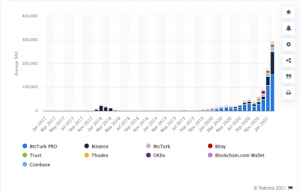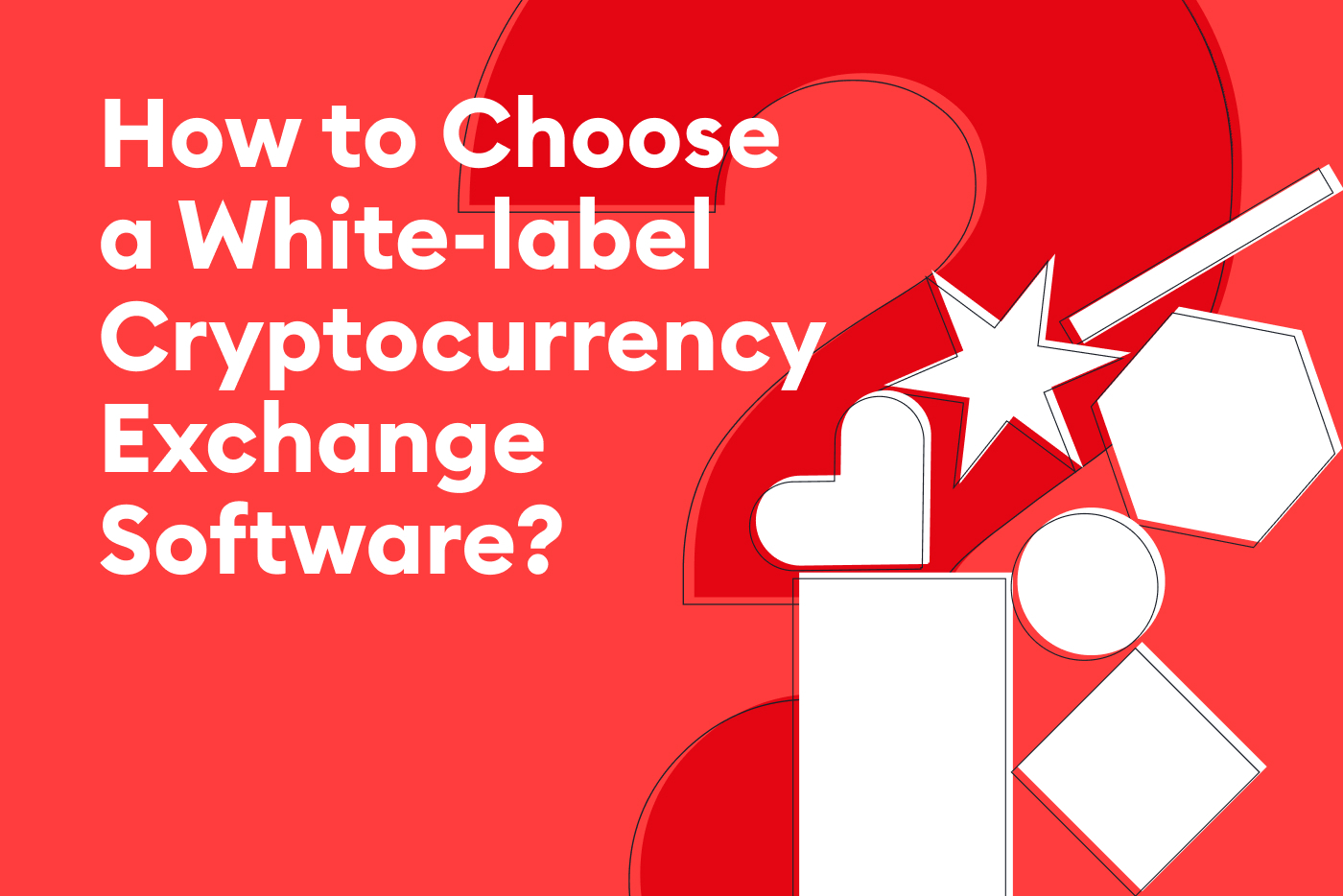
Turkey has been at the center of the digital asset adoption discussion for some time now. As a country with the potential to become a global blockchain hub, it deserves careful revision.
The adoption measurement struggle
Measurement of digital asset use in Turkey has proven to be a more delicate task than in other countries. In its 2021 Global Customer Survey, Statista presented Turkey as one of the top five countries leading digital asset adoption worldwide. According to the study, nearly 16% of survey respondents said they owned or used digital assets [1].
Conversely, two recent studies carried out by local exchanges draw a sharp contrast to this posture. Istanbul-based leading cryptocurrency trading platform Paribu reported a digital asset use of less than 1% in 2020, with an eleven-fold increment in 2021 (~7.7%). The same report details a 54 percentage point increase in the number of people who heard about cryptocurrencies; a 74% user satisfaction related to transaction experience was also noted. Respondents also selected the ability to execute transactions 24/7 with no geographic restrictions to be the predominant advantage for digital assets’ use. Interestingly, this growth in digital asset awareness did not come accompanied by knowledge in its underlying blockchain technology. For example, four-out-of-five people never heard of blockchain technology, virtually maintaining this level from the previous year [2].
Furthermore, a more recent data-centered integral study carried out by Statista displays the growth of daily users of selected applications that allow cryptocurrency storage, from January 2017 to February 2021. Nearly 300,000 users utilize cryptocurrency-related storage applications daily, with BtcTurk PRO and Binance leading the list.

Source: Average number of daily active users (DAU) of selected apps that allow for cryptocurrency storage in Turkey from January 2017 to February 2021 [3].
Potential reasons for adoption
Similarly to many South American or African countries, digital assets have served as protection against inflation in Turkey, and fueled the interest in those looking for a hedge. In February, the lira experienced an inflation rate jump of 15%, a percentage considerably higher than the 5% target set by the monetary authority. In addition to the inflation jump, the lira continues its long-term depreciation against the US dollar. Since its value of 1.78 USD/TRY in October, the exchange rate has been steadily increasing to 8.5 USD/TRY in September 2021, to its current 12.36 USD/TRY.
The current state of affairs
In addition to the opposing positions that overburden the analysis on digital asset adoption in Turkey, one can encounter further data-related challenges – with volume analysis being a central one. Take, for example, the $2.8 billion traded between March 20-24 – a spectacular increase when compared to the $12 million traded during the same period last year. What would otherwise be a valuable piece of information on adoption trends, is subject to a thorough examination. This stems from Turkish exchanges not requiring licenses, with several operating with inflated volumes and incurring unethical practices [4].
A timeline of recent events
Some relatively recent events from 2021 that will probably affect the adoption of digital assets in Turkey include:
- April 16th. The Central Bank of the Republic of Turkey (CBRT) announced the prohibition of the use of cryptocurrency as a payment method. While taken as a setback by millions of users and payment firms, this statement did not make it illegal to trade digital assets. It did not change the circumstances for cryptocurrency exchanges.
- April 30th. The CBRT banned the use of digital wallet providers as fiat on-ramps for crypto exchanges. This was the first attempt at introducing a legal framework that would define digital assets as “intangible assets that are virtually generated using a distributed ledger or a similar technology and distributed over digital networks,” not as currencies.
- September 15th. The CBRT advanced an R&D project to analyze the prospect of a digital Turkish Lira. It signed a memorandum of understanding with three domestic research and technology companies that will form the “Digital Turkish Lira Collaboration Platform.” Participants will develop and test the digital lira prototype network [6] [7].
- September 20th. A conflict arose between Turkish authorities. Turkish President Recep Tayyip Erdoğan spoke against the CBRT position on digital assets, declaring it to be at ‘war with cryptocurrencies’ [8].
Conclusion
While the current status of digital asset adoption is momentarily unclear, we can gauge one probable conclusion – the Turkish region will be subject to many blockchain-related developments in the coming years. Those developments may see extraordinary adoption rates, political and regulatory developments, or a combination of both.
Your Scalable Solution
Scalable Solutions can provide a wide range of products and services in the space to make the ‘create your exchange’ journey easier – regardless of the region. With several partners to help our clients navigate the regulatory requirements needed to run an exchange, we are equipped to swiftly adapt to new circumstances – both technological and regulatory.
Get in touch with us today to bring your project to life.
References
[1] Buchholz, Katharina, and Felix Richter. “Infographic: How Common Is Crypto?” Statista Infographics, 17 Mar. 2021, https://www.statista.com/chart/18345/crypto-currency-adoption/.
[2] Paribu, Akademetre. June 2021. Cryptocurrency Awareness Research. Accessible at https://www.paribu.com/blog/wp-content/uploads/2021/09/Arastirma-raporu-ENG.pdf.
[3] Best, Raynor de. “Most Popular Cryptocurrency Apps Turkey 2021.” Statista, 7 May 2021, https://www.statista.com/statistics/1222485/most-popular-cryptocurrency-wallets-turkey/.
[4] Diwakar, Amar. Why Are Cryptocurrencies Booming in Turkey? https://www.trtworld.com/magazine/why-are-cryptocurrencies-booming-in-turkey-45827.
[5] Kahraman, Erhan. “Crypto Payments Banned in Turkey – Is This Just the Beginning?” Cointelegraph, 20 Apr. 2021, https://cointelegraph.com/news/crypto-payments-banned-in-turkey-is-this-just-the-beginning.
[6] Bryanov, Kirill. “Turkish Central Bank Taps Local Tech Firms for Digital Currency R&D.” Cointelegraph, 15 Sept. 2021, https://cointelegraph.com/news/turkish-central-bank-taps-local-tech-firms-for-digital-currency-r-d.
[7] “Press Release on Central Bank Digital Turkish Lira R&D Project.” TCMB, 15 Sept. 2021, https://www.tcmb.gov.tr/wps/wcm/connect/EN/TCMB+EN/Main+Menu/Announcements/Press+Releases/2021/ANO2021-40.
[8] Kahraman, Erhan. “’We Are at War’ with Crypto, Says Turkish President Erdoğan.” Cointelegraph, 20 Sept. 2021, https://cointelegraph.com/news/we-are-at-war-with-crypto-says-turkish-president-erdogan.

